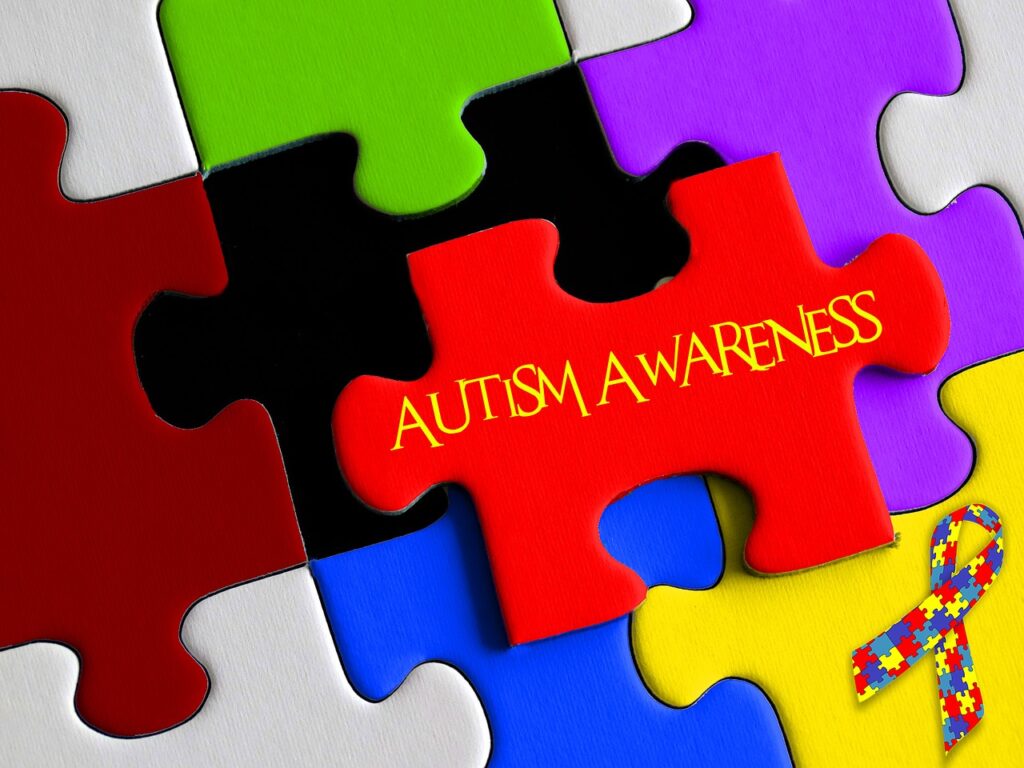
2 April is observed as World Autism Awareness Day every year. In fact, the entire month of April is marked as National Autism Awareness Month throughout the globe.
National Autism Awareness Month revolves around educating local communities and raising public awareness about autism. It’s vital to recognise autism, promote its acceptance, and ignite change in communities for patients with Autism Spectrum Disorder (ASD).
Why?
Well, every 1 in 100 people in Australia has autism.
This one of the fastest-growing developmental disabilities impacts 70 million individuals worldwide. It’s appalling that it makes up 2.7% of the world population living with autism.
To say the least, living with autism is challenging. Note that no two people with autism have the same lives. Their challenges, symptoms, experience, and support needs are different from one another.
However, if we take the time to understand more about people with autism and offer them the needed support, we can create a diverse, inclusive, and accepting world.
In this blog, learn more about autism and autism awareness month in detail.
What is Autism Awareness Month?
The first National Autism Awareness month was held in April 1970 — almost 50 years ago — by the Autism Society. The motive was to highlight the need of improving the quality of life of autistic individuals so they can lead meaningful lives as an integral part of society.
However, autism became the fastest-growing diagnosis in the world since then. In the 1970s and 1980s, the diagnosis rate of children with autism was 1 in every 2000 children.
This alarming increase in the autism diagnosis rate enhanced the momentum around Autism Awareness Month. It propelled the establishment of World Autism Awareness Day on 2 April. This initiative by the United Nations General Assembly helps to kick off a month of awareness and support events the entire month, especially on 2 April. Autism organisations around the globe come together and conduct research, diagnosis and treatment for those whose development path is affected by a lifelong neurological condition.
While April is known as Autism Awareness Month, the Autism Society is lately making active efforts to transform it into Autism Acceptance Month subtly. It’s because finding acceptance is one of the biggest challenges for autistic individuals to develop a strong support system.
Also, note that Autism Awareness Day revolves around a certain theme every year. It is done to navigate the efforts of all the Autism communities towards one defined and strategic direction. The 2023 Autism Awareness Day theme is “Transforming the narrative: Contributions at home, at work, in the arts and policymaking.” It is a step towards spreading awareness and helping people accept and support autistic people in the society and workplace.
How Can You Participate in Autism Awareness Month?
If you want to show your love and acceptance to the autism community during Autism Awareness Month, here are a few ways –
- Wear or display the infinity symbol that represents the diversity of the autism spectrum.
- Educate yourself and the people around you about autism and help reduce the stigma around the condition.
- Support businesses that are run by autistic individuals or hire them.
- Celebrate the month of April but be year-round allies.
- Build an inclusive community to support autistic individuals by being open-minded to all spectrums.
How Does NDIS Help With Autism Awareness?
The aim of NDIS, or National Disability Insurance Scheme, is to provide individualised support for people with permanent and significant disabilities and their families and carers. The NDIS disability support services help participants be more independent, engage socially and economically and connect and engage genuinely with the communities.
NDIS offers funds to assist autistic individuals so that they can –
- Pursue their goals, objectives and aspirations,
- Increase their independence
- Increase social and economic participation
- Develop their capacity to actively take part in the community
Moreover, the scheme offers NDIS therapy services, NDIS speech pathology and NDIS psychologists to provide standardised assessments.
Since autism is diagnosed along a spectrum, it is categorised by severity at levels 1, 2 or 3. These levels correspond with the NDIS eligibility lists. You can know more about what these eligibility levels categorise at the Autism Awareness Australia website.
The support needs of each autistic individual vary and change from situation to situation. An individual can have a combination of levels of diagnosis, which may create challenges in application. To make access more convenient and approachable, NDIS-registered providers offer individually tailored support services. They help you walk the path of getting NDIS easily — from registering for the scheme to learning about your eligibility to minimising the waiting period to receive the funding.
Conclusion
A lot of people mistake autism awareness for a movement to help fix people with autism. It’s inappropriate, to say the least.
Celebrate autism awareness month to let the autistic people in your life know they are supported without their disorder being the focus at every turn.








